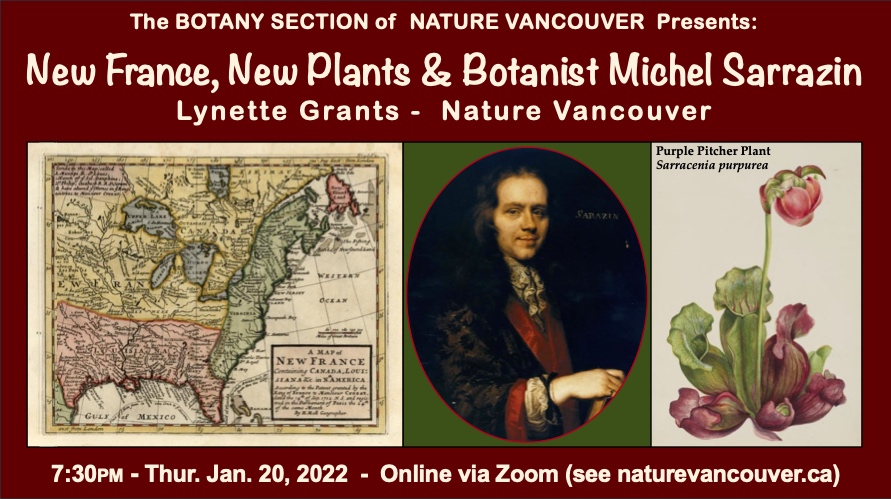🌿 New France, New Plants and Botanist Michel Sarrazin – Lyn Grants
🌿New France, New Plants and Botanist Michel Sarrazin – Lyn Grants
At one time a vast tract of eastern North America was referred to as New France. Recently ‘discovered’ lands often bore the appendage “new” because of geographical or other features which reminded the ‘discoverers’ of their homelands; but the names often also signified a claim to the land’s resources: be they gold, spices, timber or furs.
In claiming the lands for France, Jacques Cartier wrote glowingly about the rich vegetation which at first glance seemed familiar “magnificent trees of the same varieties as in France”. With settlement, experience and contact with the indigenous inhabitants, settlers and administrators realized that much of the vegetation, superficially similar, was in fact different and interesting, and that the indigenous knowledge of the local vegetation could be life-saving and, perhaps, economically valuable.
With discovery came increasing Old World curiosity about New World plants. With botanical books being published on a wider scale, descriptions of plants and their uses were reaching a broader audience. France valued botanical knowledge and the royal garden at Fontainebleau contained more and more specimens sent back by both explorers and settlers.
New France encompassed a vast area, but by the late 17th century the thriving colony of Quebec became a major focus of attention. In 1697 Michel Sarrazin was appointed to the colony; not only as botanist and naturalist, but as surgeon, doctor and apothecary. Although heavily taxed by his duties as a medical practitioner, Sarrazin also took time to explore and systematically document the flora and fauna of the country and sent many valuable reports and specimens back to France.
In New France, New Plants & Michel Sarrazin, we’ll join presenter Lyn Grants on a voyage of discovery; a voyage made doubly interesting and challenging because, with hindsight we now have a greater and saddened understanding of the lasting impact on the indigenous inhabitants as the ‘old’ world discovered the ‘new’.
This presentation will be aired via Zoom Video Conferencing. On the Monday preceding the event, Nature Vancouver members will receive the Zoom link in the weekly e-News. To join the talk on Thursday, click on that link after 7:15 pm. The talk will begin at 7:30 pm. Non-members are welcome and should Email denis@NatureVancouver.ca well in advance to register for the link.
